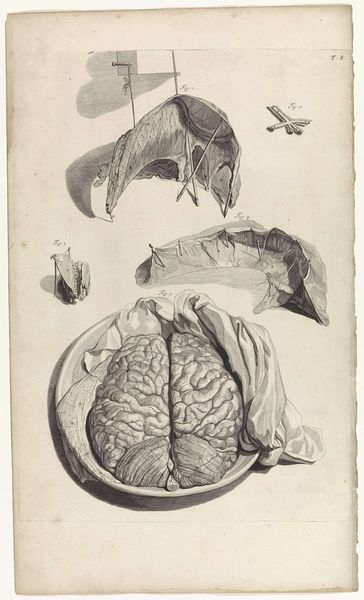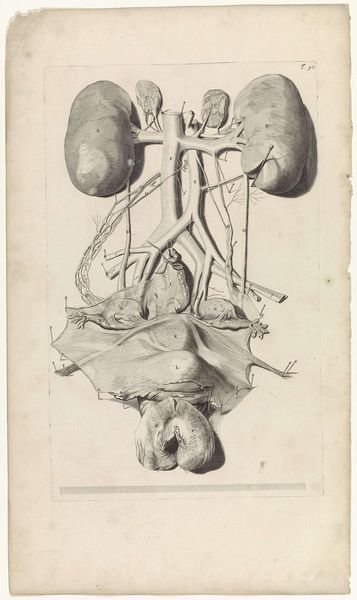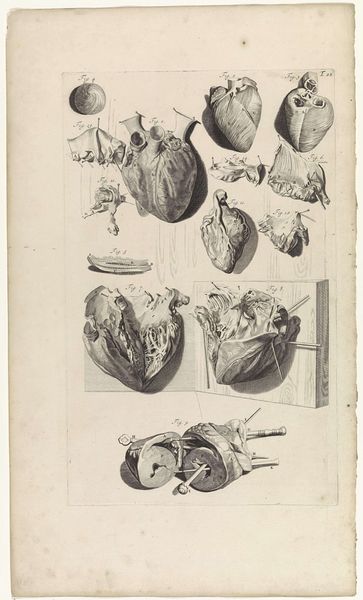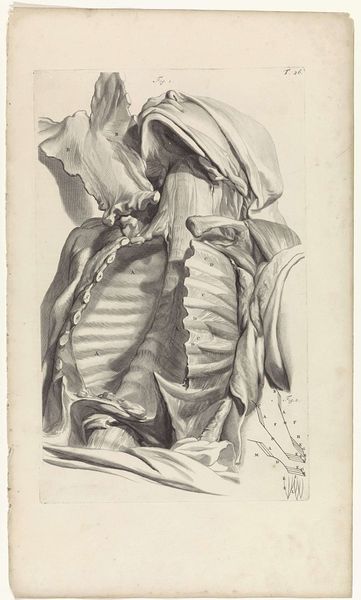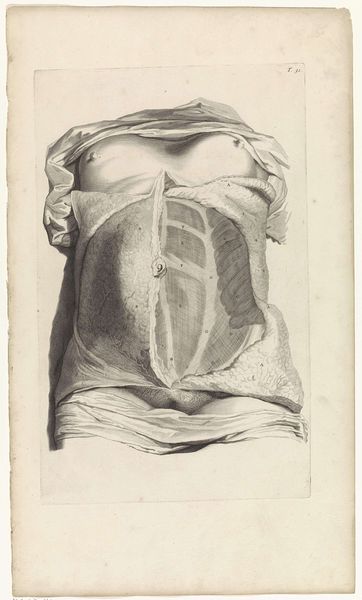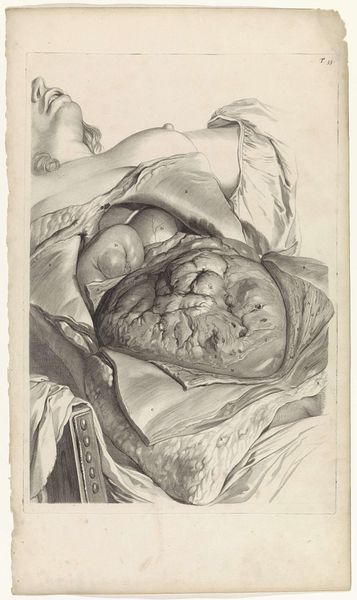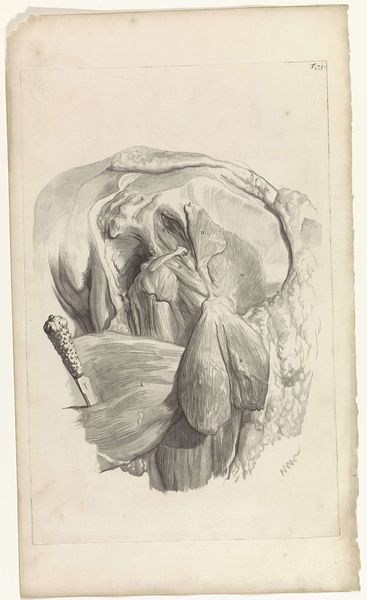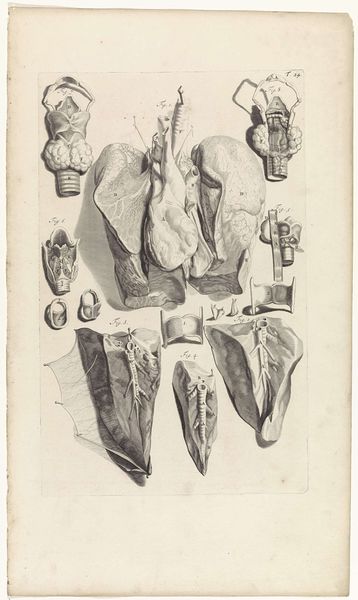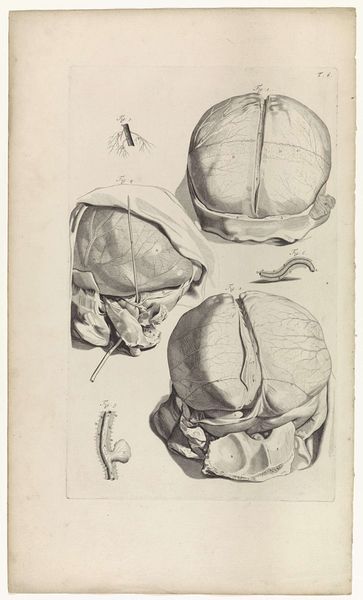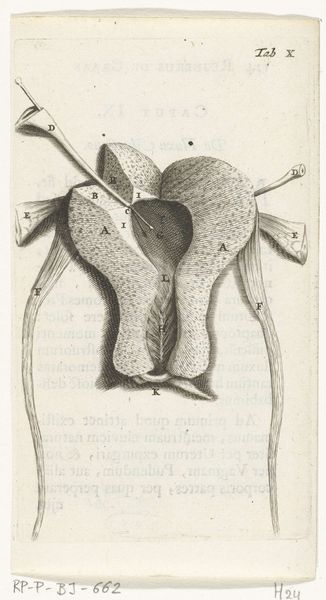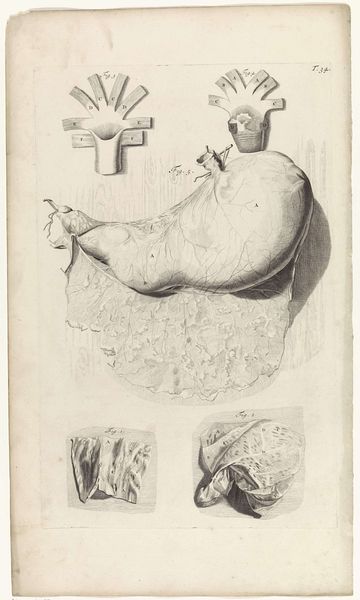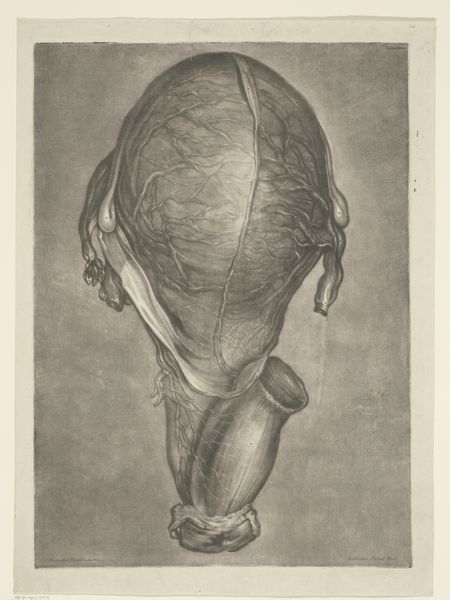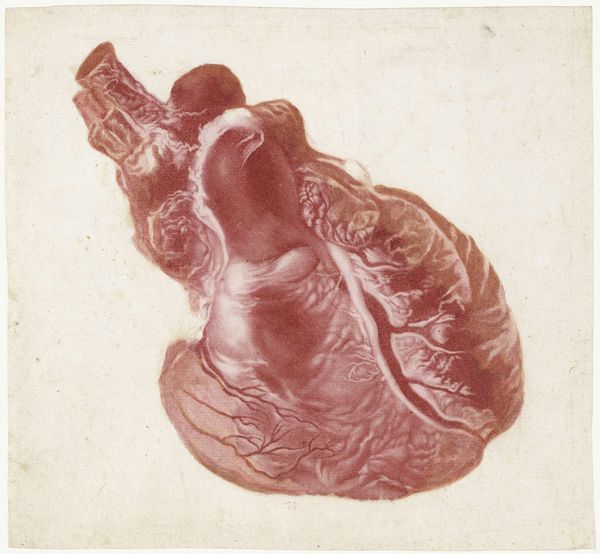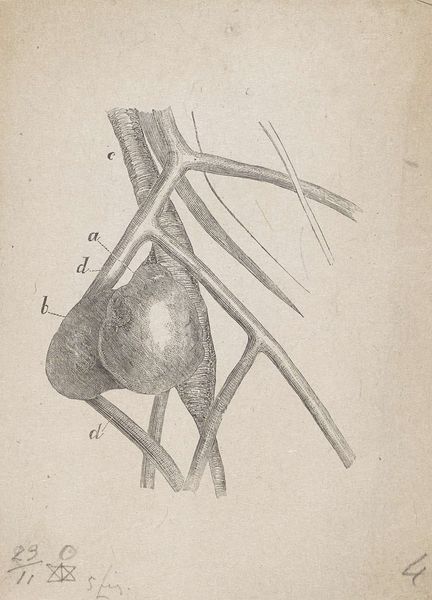
drawing, paper, ink
#
drawing
#
toned paper
#
light pencil work
#
quirky sketch
#
baroque
#
pencil sketch
#
paper
#
personal sketchbook
#
ink
#
pen-ink sketch
#
sketchbook drawing
#
pencil work
#
watercolour illustration
#
academic-art
#
sketchbook art
Dimensions: width 275 mm, height 443 mm
Copyright: Rijks Museum: Open Domain
Editor: So, this is "Anatomische studie van de lever" – Anatomical study of the liver – a drawing by Pieter van Gunst from 1685, currently at the Rijksmuseum. It’s done with ink on paper. The sketch feels so clinical, so detached... almost surreal. What do you make of it? Curator: Detached, yes, but don’t you also feel a kind of... reverence? Look at how the light catches the curves, how meticulously each vessel is rendered. It’s almost a still life, isn’t it? A meditation on mortality, framed as a scientific pursuit. I see echoes of Rembrandt in the stark realism, the unflinching gaze. What does the placement on different blocks of wood evoke for you? Editor: Hmm, I didn’t think about the reverence… the blocks feel almost like a butcher’s display? Maybe I was stuck on that clinical feeling after all. I can see it being like Rembrandt – but Rembrandt’s figures often look so *alive,* while this feels completely like a demonstration or a teaching tool. Curator: Exactly! It’s straddling that line between art and science, a tightrope walk. The pins sticking out of the tissue evoke an intense kind of tension, for me. What sort of cultural meanings were implicit to an audience in 1685? How might they understand art’s place in science, or science’s place in art? Maybe van Gunst is showing us a little bit of both! Editor: You’ve totally reframed this for me. Now I see less “clinical detachment” and more this... charged curiosity. It's not just an objective study; it's an active investigation! Curator: And doesn’t that make it a little more... visceral?
Comments
No comments
Be the first to comment and join the conversation on the ultimate creative platform.
